Discover History of the Celts
History of the Celts

29 Episodes
Reverse
This episode I discuss the beginning of Publius Cornelius Scipio Africanus’ career. I start off with the final days of his Father, also named Publius Corneilus Scipio, and his Uncle, Gnaeus Cornelius Scipio, who were busy expanding Roman control over Iberia. Listen now to see what happens to the Scipio family.Email: historyoftheceltspodcast@gmail.comWebsite: hocpod.wordpress.comPatreon: patreon.com/historyoftheceltsStickers: Link to the Patreon shop where you can buy the stickers.Registry: The History of the Celts Podcast RegistryInstagram: historyoftheceltsX (Twitter): @histoftheceltsIntro: Skye Cuillin by Kevin MacleodBreak: Hidden Past by Kevin MacleodOutro: Celtic Heart by Kira DalyPrimary Sources:Livy, History of Rome, ISBN 978-0-14-196306-8Polybius, The Histories, University of Chicago LinkSecondary SourcesGoldsworthy, Adrian: The Fall of Carthage, ISBN 978-0-3043-6642-2
This episode details the beginning of the end of the Carthaginian campaign during the Second Punic War. For thefirst time, the Carthaginians started experiencing defeats in Southern Italy and Sicily. Listen now to hear the story!Email: historyoftheceltspodcast@gmail.comWebsite: hocpod.wordpress.comPatreon: patreon.com/historyoftheceltsStickers: Link to the Patreon shop where you can buy the stickers.Registry: The History of the Celts Podcast RegistryInstagram: historyoftheceltsX (Twitter): @histoftheceltsIntro: Skye Cuillin by Kevin MacleodOutro: Celtic Heart by Kira DalyPrimary Sources:Livy, History of Rome, ISBN Secondary SourcesGoldsworthy, Adrian: The Fall of Carthage, ISBN 978-0-3043-6642-2Lomas, Kathryn: Romans, Latins, and Italians in the Second Punic War. In Hoyos, Dexter: A Companion to the Punic Wars. ISBN 978-1-4051-7600-2
This episode I discuss the allies of both Rome and Carthage and why some would choose which side to be on. Rome’sallies in Italy were not always loyal to it. Either because of discontent in these cities or because of fear of Hannibal some places turned over to Hannibal’s side. At the same time, the Romans sent a contingent of men to pacify Cisalpine Gaul. Listen to find out what happens because of it.Email: historyoftheceltspodcast@gmail.comWebsite: hocpod.wordpress.comPatreon: patreon.com/historyoftheceltsStickers: Link to the Patreon shop where you can buy the stickers.Registry: The History of the Celts Podcast RegistryInstagram: historyoftheceltsX (Twitter): @histoftheceltsIntro: Skye Cuillin by Kevin MacleodOutro: Celtic Heart by Kira DalyPrimary SourcesPolybius Histories Book III Titus Livius The History of RomeSecondary SourcesGoldsworthy, Adrian: The Fall of Carthage, ISBN 978-0-3043-6642-2Lomas, Kathryn: Romans, Latins, and Italians in the Second Punic War. In Hoyos, Dexter: A Companion to the Punic Wars. ISBN 978-1-4051-7600-2
This episode I discuss the campaigns in Iberia. We follow the two Scipio brothers, Gnaeus and Publius, as they wrangle their way through the peninsula aiming to kick the Carthaginians out. On the way they fight Hannibal’s brother Hasdrubal as he tries to keep Carthaginian influence in the region. Listen now to find out more!Email: historyoftheceltspodcast@gmail.comWebsite: hocpod.wordpress.comPatreon: patreon.com/historyoftheceltsStickers: Link to the Patreon shop where you can buy the stickers.Registry: The History of the Celts Podcast RegistryInstagram: historyoftheceltsX (Twitter): @histoftheceltsIntro: Skye Cuillin by Kevin MacleodOutro: Celtic Heart by Kira DalyPrimary SourcesPolybius Histories Book III Titus Livius The History of RomeSecondary SourcesEdwell, Peter: War Abroad: Spain Macedon, Africa. In Hoyos, Dexter: A Companion to the Punic Wars. ISBN 978-1-4051-7600-2Goldsworthy, Adrian: The Fall of Carthage, ISBN 978-0-3043-6642-2
This episode I discuss the worst defeat suffered by the Romans in the Second Punic War. Hannibal’s genius is on fulldisplay as well as Rome’s disorganization. Listen now to understand how Hannibal beat one of the largest armies in the Ancient World.Email: historyoftheceltspodcast@gmail.comWebsite: hocpod.wordpress.comPatreon: patreon.com/historyoftheceltsStickers: Link to the Patreon shop where you can buy the stickers.Registry: The History of the Celts Podcast RegistryInstagram: historyoftheceltsX (Twitter): @histoftheceltsIntro: Skye Cuillin by Kevin MacleodOutro: Celtic Heart by Kira DalyPrimary Sources: Polybius Histories Book III Titus Livius The History of Rome Book XXIISecondary Sources Cunliffe, Barry: The Ancient Celts, ISBN 978–0–19–875292–9Goldsworthy, Adrian: The Fall of Carthage, ISBN 978-0-3043-6642-2
This episode is the Patreon announcement. Any links regarding support for this show going forward will bein the description of every episode. I discuss my patreon announcement as well as the new logo that was made into stickers that are available to you now. I also will talk about the podcast registry on Amazon. If none of this interests you please go on to the next episode that will be released in tandem with this one. Thank you for listening!Email: historyoftheceltspodcast@gmail.comWebsite: hocpod.wordpress.comPatreon: patreon.com/historyoftheceltsStickers: Link to the Patreon shop where you can buy the stickers.Registry: The History of the Celts Podcast RegistryInstagram: historyoftheceltsX (Twitter): @histoftheceltsIntro: Skye Cuillin by Kevin MacleodOutro: Celtic Heart by Kira Daly
This episode details the defeat suffered by the Romans at Lake Trasimene. It was because of this that a famousRoman general named Quintus Fabius Maximus executed a strategy that was effective enough for it to be named after him. Find out why men like George Washington use the Fabian strategy 2000 years after the Roman general it was named after.Email: historyoftheceltspodcast@gmail.comWebsite: hocpod.wordpress.comPatreon: patreon.com/historyoftheceltsStickers: Link to the Patreon shop where you can buy the stickers.Registry: The History of the Celts Podcast RegistryInstagram: historyoftheceltsX (Twitter): @histoftheceltsIntro: Skye Cuillin by Kevin MacleodOutro: Celtic Heart by Kira DalyPrimary Sources: Polybius Histories Book III Titus Livius The History of Rome Book XXIISecondary Sources Cunliffe, Barry: The Ancient Celts, ISBN 978–0–19–875292–9Goldsworthy, Adrian: The Fall of Carthage, ISBN 978-0-3043-6642-2
This episode details the first engagements between Hannibal and the Romans. The battles of Ticinus and the Trebia were the first real engagements between the two combatants and showcasedHannibal’s prowess and generalship. That Gauls do feature in this episode but they are treated as unreliable at best. The end of this episode is a small announcement for the future of the podcast. A full episode on the future of this show will come out soon.Email: historyoftheceltspodcast@gmail.comWebsite: hocpod.wordpress.comInstagram: historyofthecelts X (Twitter): @histoftheceltsIntro: Skye Cuillin by Kevin MacleodOutro: Celtic Heart by Kira DalyPrimary Sources: Polybius Histories Book III Titus Livius The History of Rome Book XXISecondary Sources Cunliffe, Barry: The Ancient Celts, ISBN 978–0–19–875292–9Goldsworthy, Adrian: The Fall of Carthage, ISBN 978-0-3043-6642-2Lancel, Serge: Hannibal, ISBN0-631-20631-0
This episode is a long conversation I have been meaning to record and get out to you for a while but due to scheduling conflicts it has been pretty hard for Dr. Ian Stewart and I to meet up. In our interview we discuss some of the content of his new book The Celts: A Modern History which outlines the rise of Celtic nationalism and ideas associated with it in the 1800s. We also discuss some more modern feelings towards the Celts. Get his new book in the link below.Link to The Celts: A Modern History by Dr. Ian Stewart on Princeton University Press.Email: historyoftheceltspodcast@gmail.comWebsite: hocpod.wordpress.comInstagram: historyofthecelts X (Twitter): @histoftheceltsIntro: Skye Cuillin by Kevin MacleodOutro: Celtic Heart by Kira Daly
Today’s episode is a rather impromptu episode I got the inspiration to do early in the morning. If this episode does not release on St. Patrick’s Day for you, I apologize I should have thought of this sooner. Today’s episode will briefly detail the life of St. Patrick. With much left out for a later episode I hope today’s episode will shed some light on who St. Patrick was as a person and give you a deeper understanding and appreciation for the celebration of St. Patrick. Happy St. Patrick’s Day, stay safe and have fun!Email: historyoftheceltspodcast@gmail.comWebsite: hocpod.wordpress.comX (Twitter): @histoftheceltsIntro: Skye Cuillin by Kevin MacleodOutro: Celtic Heart by Kira DalyPrimary SourcesThe Confession of St. Patrick Secondary SourcesList of Countries by population of Irish Heritage from WikipediaSt. Patrick uses the Shamrock as a metaphor for the Trinity from WikipediaSt. Patrick’s Day in the United States from WikipediaO’Loughlin, Thomas. Patrick the Man from Discovering St. PatrickVeritas Publications. Patrick: A Short Biography
This episode begins the series on the Second Punic War. After a re-cap of the interim period between the First and Second Punic Wars, I discuss the beginning of one of the Ancient World’s most famous generals, Hannibal. Following Hannibal’s rise to power in the 3rd Century BC, the Carthaginian general executed one of the things that has made him one of the most famous generals of all time, his crossing of the Alps into Italy. Within this narrative is a discussion of how our friends, the Celts, are involved in this conflict. Listen now if you want to learn more!Link to Hannibal’s SpeechLink to The Celts: A Modern History by Ian Stewart on Princeton University Press.Email: historyoftheceltspodcast@gmail.comWebsite: hocpod.wordpress.comX (Twitter): @histoftheceltsIntro: Skye Cuillin by Kevin MacleodOutro: Celtic Heart by Kira DalyPrimary Sources: Polybius Histories Book III Titus Livius The History of Rome Book XXISecondary Sources Cunliffe, Barry: The Ancient Celts, ISBN 978–0–19–875292–9Goldsworthy, Adrian: The Fall of Carthage, ISBN 978-0-3043-6642-2Lancel, Serge: Hannibal, ISBN 0-631-20631-0
This episode I discuss the interwar period between the First and Second Punic Wars which I have dubbed the Inter Bellum Punica. This episode will serve as a precursor to next episode where I discuss the Second Punic War, also known as the Hannibalic War in our sources. The first part will be on Carthage’s expansion into Spain while the second part will be on Rome’s wars with the Celts in Italy.
Link to The Celts: A Modern History by Ian Stewart on Princeton University Press.
Email: historyoftheceltspodcast@gmail.com
Website: hocpod.wordpress.com
X (Twitter): @histofthecelts
Intro: Skye Cuillin by Kevin Macleod
Outro: Celtic Heart by Kira Daly
Primary Sources:
Diodorus Siculus Bibliotheka XXV.10
Polybius Histories Book II
Secondary Sources
Cunliffe, Barry: The Ancient Celts, ISBN 978–0–19–875292–9
Goldsworthy, Adrian: The Fall of Carthage, ISBN 978-0-3043-6642-2
Lancel, Serge: Hannibal, ISBN 0-631-20631-0
This episode I discuss the Celts and their involvement as mercenaries in the wars of the Mediterranean. I go over how the Celts fought with the Ptolemaic Pharaohs of Egypt and their eventual rebellion and suicide in the Nile. Celtic Mercenaries were also involved with the fighting between the Romans and Carthaginians in the First Punic War. I detail the rise of Carthage as well as their war with the Romans. One Celtic man named Autaritas, a mercenary under the employ of Carthage, rebelled along
with other mercenaries because of a lack of pay. Join me in this episode to hear more about this
Email: historyoftheceltspodcast@gmail.com
Website: hocpod.wordpress.com
X (Twitter): @histofthecelts
Intro: Skye Cuillin by Kevin Macleod
Outro: Celtic Heart by Kira Daly
Primary Sources:
Callimachus, Hymn to Apollo
Polybius, Histories: Description of the treatment of prisoners by the rebels: Polybius, Histories; 1.80
Secondary Sources:
Cunliffe, Barry: The Ancient Celts, ISBN 978–0–19–875292–9
Ellis, Peter B.: The Celtic Empire, ISBN 978-0786709335
Goldsworthy, Adrian: The Fall of Carthage, ISBN 978-0-3043-6642-2
Green, Miranda J.: The Celtic World, ISBN: 0-415-05764-7
Hoyos, Dexter: Peoples of the Ancient World: The Carthaginians, ISBN 978-0-415-43644-1
This episode is a discussion on the extremities of Celtic Culture. The first half is a discussion of the Celts in Ukraine and how they affected the Bosporan Greeks in Ukraine and Moldova. The second half is a discussion of the Celitberians and the Celts in Iberia. There is also a discussion of the differences between the two. The migration period of Celtic History has also finished as of this episode.
Email: historyoftheceltspodcast@gmail.com
Website: hocpod.wordpress.com
X (Twitter): @histofthecelts
Intro: Skye Cuillin by Kevin Macleod
Outro: Celtic Heart by Kira Daly
Primary Sources:
Diodorus Siculus: Bibliotheka 5.33, 12.31
Herodotus:
The Histories, 2.33.3 Description of the Celts’ homeland
Strabo: Geography 3.4.12
Secondary Sources:
Cunliffe, Barry: The Ancient Celts, ISBN 978–0–19–875292–9
Freeman, Philip: The Philosopher and the Druids: A Journey Among the Ancient Celts. ISBN:
978-1-4165-8523-7
Lorrio Alberto J., Ruiz-Zapatero Gonzalo, ‘The Celts in Iberia: An Overview’, E-Keltoi, Volume 6 The Celts in the Iberian Peninsula.
Maier, Bernhard: The Celts: A History from Earliest Times to the Present. ISBN 978-1-4744-2620-3
Mozota, Francisco Burillo, ‘Celtiberians: Problems and Debates’, E-Keltoi, Volume 6: The Celts in the Iberian Peninsula.
Shchukin M. B., Tchebotarenko G. F., and Shcherbakova T. A., ‘Two Finds Belonging to La Tène and Roman Periods from the Moldavian Republic’, Oxford Journal of Archaeology, 12 (1993)
Shchukin M., ‘The Celts in Eastern Europe’, Oxford Journal of Archaeology, 14 (1995), 201–27;
Treister M. J., ‘The Celts in the North Pontic Area: A Reassessment’, Antiquity, 67 (1993), 789–804
This episode I interview the host of the Cambrian Chronicles YouTube channel. The Cambrian Chronicles YouTube Channel presents Welsh and Brythonic History so our conversation centers on the study of history generally. While less formal than the previous interview with Dr. Philip Freeman I hope this is as informative as the last interview.
Cambrian Chronicles YouTube Channel
Mad Dogs of Cambria
Website Link: hocpod.wordpress.com
Email: historyoftheceltspodcast@gmail.com
Twitter (X): @histofthecelts
This episode details the arrival of the Celts into Asia Minor and their transformation into the Galatians of biblical fame. While we are centuries away from Paul’s epistle to the Galatians it is important I outline how the Celtic people of central Anatolia made it there. I also outline the Gauls' initial movement into Galatia and eventual involvement with the Hellenistic Kings of Asia Minor.
Website Link: hocpod.wordpress.com
Email: historyoftheceltspodcast@gmail.com
Twitter (X): @histofthecelts
Primary Sources:
Justin, Epitome of the Philippic History of Pompeius Trogus. 25.1
Livy, Ab Urbe Condita, 38.16
Memnon, History of Heracleia Ch. 11
Pausanias, Description of Greece. 15.15.3
Polybius, Histories. 4.46
Strabo, Geography. 12.15.1
Secondary Sources:
Cunliffe, Barry: The Ancient Celts, ISBN 978–0–19–875292–9
Freeman, Philip: The Philosopher and the Druids: A Journey Among the Ancient Celts. ISBN: 978-1-4165-8523-7
Grainger, John: The Galatians: Celtic Invaders of Greece and Asia Minor ISBN; 978-1526770684
Maier, Bernhard: The Celts: A History from Earliest Times to the Present. ISBN 978-1-4744-2620-3
Rankin, David: The Celts and the Classical World. ISBN 0-415-15090-6
Images:
The Dying Gaul: Image from Wikippedia
The Ludovisi Gaul: Image from Wikipedia
Cavarus Coin from Tylis: cngcoins.com, Kings of Thrace, Celtic, Tylis, Cavarus
This episode I discuss the invasion of the Balkans by the Celts. Led by multiple leaders but most famously Brennus, the Gauls/Celts invaded Macedon and continued into Greece proper making it all the way to Delphi. From the accounts of our Classical authors, we see echoes of the Greek belief in the barbarity of the Celts. If you want tohear some of these accounts, then join me in this episode on the Celtic Invasion of Greece.Website: https://hocpod.wordpress.com/Email: historyoftheceltspodcast@gmail.comTwitter (X): @histoftheceltsPrimary Sources:Diodorus Siculus: Library of History, Book 22.9Justin: Epitome of the Philippic History of Pompeius Trogus, Book 24.5-25.2Pausanias: Description of Greece, Book 10.19-23Secondary Sources:Cunliffe, Barry: The Ancient Celts, ISBN 978–0–19–875292–9Dizdar, Marko: Late La Tène Settlements in the Vinkovci Region (Eastern Slavonia, Croatia): Centres of Trade and Exchange. https://www.jstor.org/stable/j.ctv8d5tb6.7Freeman, Philip: The Philosopher and the Druids: A Journey Among the Ancient Celts. ISBN: 978-1-4165-8523-7
In this episode I go over the Celtic advance further into Italy. I go over their run-ins with both the Etruscans and the Romans. Finally, I focus on Livy’s account of the Celtic sack of Rome and the cementation of the Celts as the ultimate barbarians to the Romans for the centuries to come.
Primary Sources
Livy: History of Rome, Book 5 perseus.tufts.edu
Secondary Sources
Cunliffe, Barry: The Ancient Celts, ISBN 978–0–19–875292–9
This episode is on the initial settlement of the Celts in
Italy as well as the reasons for the migration of the Celts out of the Celtic homeland. As always, I go over what our classical authors have to say about these events. I supplement this with what modern scholars have to say about the subject. This episode begins a series on the migration of the Celtic people and their interactions with the people they encroached upon.
Website: https://hocpod.wordpress.com/
Email: historyoftheceltspodcast@gmail.com
Twitter (X): @histofthecelts
Primary Sources:
Justin: Epitome of the Philippic History of Pompeius Trogus, 24.4 attalus.org
Livy: History of Rome, 5.34 perseus.tufts.edu
Pliny the Elder: Natural History perseus.tufts.edu
Secondary Sources:
Cunliffe, Barry: The Ancient Celts, ISBN 978–0–19–875292–9
Maier, Bernhard: The Celts: A History from the Earliest Times to the Present, ISBN: 978-1-4744-2720-3
Green, Miranda J.: The Celtic World, ISBN: 0-415-05764-7
This episode is a short investigation into the lives of two Kings of Macedon, Philip and Alexander. Without going into too much detail this will set up the following episodes on the Celtic migrations into the Mediterranean world. I spend much of the time discussing Philip’s reign as that is not talked about as often. I also go into some anecdotes related to the Celts and Alexander in the historical record, but this episode is not as focused on the Celts as they do not feature much in the stories of Philip and Alexander.
Email: historyofthecelts@gmail.com
Twitter: @histofthecelts
Website: hocpod.wordpress.com
Primary sources:
Diodorus Siculus, Library of History Book 16.94
Strabo, Geography Book 7.3.8
Secondary Sources:
Adrian Goldsworthy, Philip and Alexander: Kings and Conquerors ISBN: 9781784978693
Barry Cunliffe, The Ancient Celts ISBN: 978–0–19–875292–9




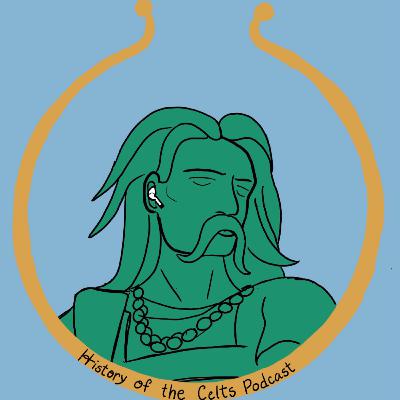
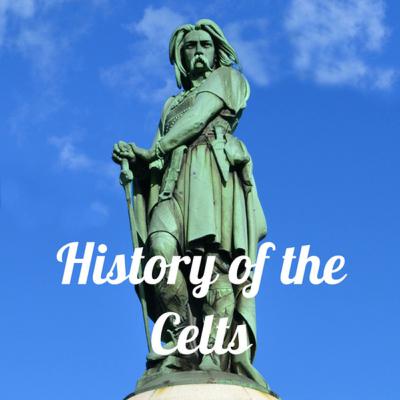
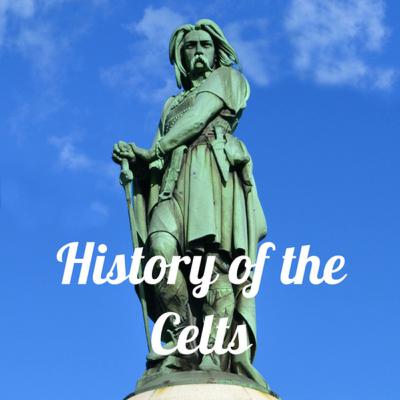

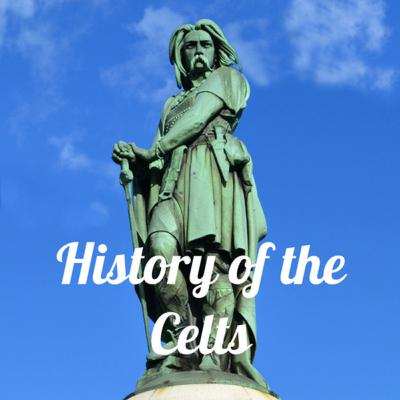

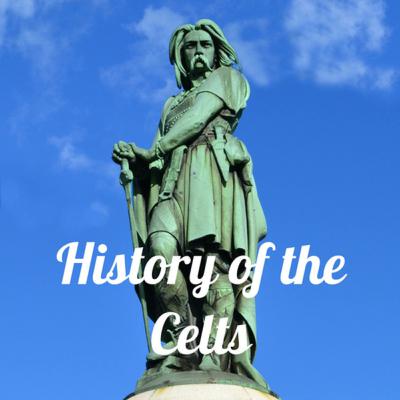
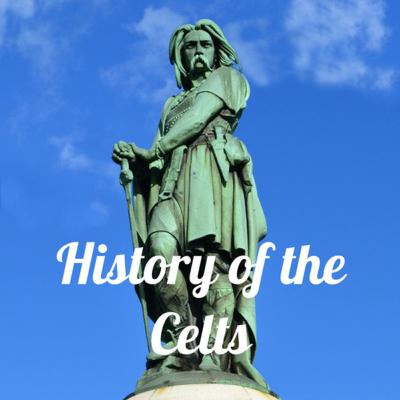
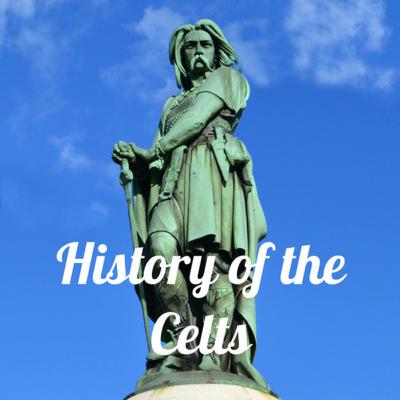
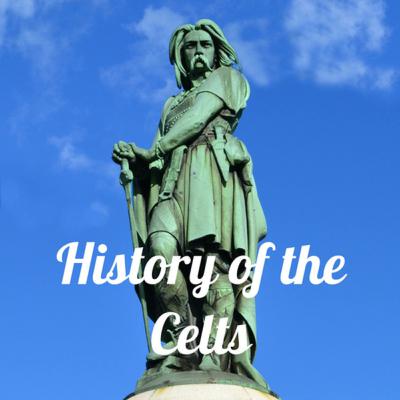


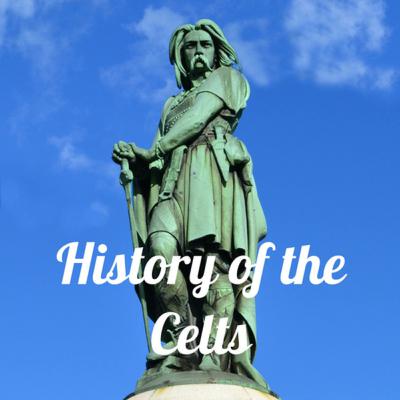




Sorry but you lost me with the use of the term "freedom units". Once I can forgive, but when you went back for a second time - I'm gone. It's a pity because I expect better from a historian